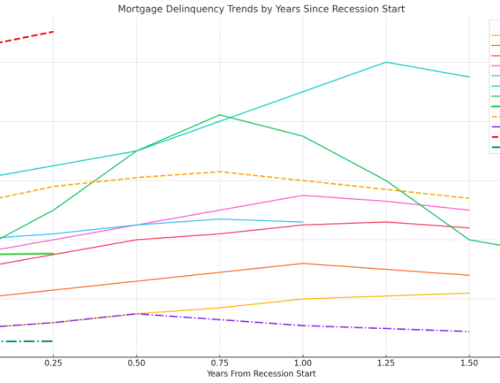By: Kelly O’Bannon | EVP, Business Development
Date: August 13th, 2024
Automated Valuation Models (AVMs) are widely used in the mortgage industry to estimate property values. While these algorithmic models can provide valuable information to borrowers and lending institutions, they may also pose challenges related to accuracy and potential biases.
In response to these concerns, the Consumer Financial Protection Bureau (CFPB) has implemented new rules aimed at addressing the accuracy and fairness of AVMs. By introducing quality control standards and addressing potential bias issues, the CFPB seeks to enhance consumer protection and improve confidence in the home valuation process.

The new rules focus on several key areas:
- Confidence in Estimates – The rules encourage lenders and secondary market issuers to work towards ensuring that AVMs provide accurate and unbiased property value estimates. This may involve using complete and correct data, reflecting current market conditions, and regularly updating models. Verifying AVM predictions against actual sale prices and establishing systems to detect and address discrepancies in AVM outputs could also be beneficial.
- Data Protection – The rules emphasize the importance of data integrity in AVMs. Financial institutions are encouraged to implement measures to protect data from unauthorized access and modification. This might include defining clear responsibilities for data management and restricting access to sensitive valuation data.
- Avoiding Conflicts of Interest – The rules address potential conflicts of interest in the valuation process. Financial institutions may consider implementing independent valuations and selecting AVM providers based on their reputation for transparency and accuracy. Segregating valuation functions from other business units, such as loan origination and underwriting, could also be considered.
- Random Sample Testing and Reviews – To help ensure the reliability of AVM valuations, the rules suggest regularly examining random output samples. This practice can help maintain high standards in AVM outputs and potentially protect customers from financial losses due to inaccurate property valuations.
- Nondiscrimination Compliance – The rules emphasize the importance of complying with applicable nondiscrimination laws. Financial institutions are encouraged to review and update their algorithms to identify and address any potential biases. Staying informed about fair lending regulations and providing internal training on anti-discrimination laws may also be beneficial.
Potential Benefits for Financial Institutions and Impacts on Mortgage Servicers
The implementation of new CFPB rules on AVMs could lead to several significant benefits for financial institutions, while also impacting mortgage servicers in various ways. One of the primary advantages is the potential for improved accuracy in valuations, which could reduce the risk of errors. This enhanced precision may result in better-informed lending decisions and minimize the chances of over- or under-valuing properties, potentially reducing financial losses. For mortgage servicers, more accurate valuations could prove beneficial when handling loan modifications or foreclosures, potentially leading to fewer disputes and appeals related to property values.
Another key benefit is the enhanced compliance with fair lending regulations. This could help financial institutions reduce their risk of regulatory fines and legal issues related to discriminatory practices, ultimately improving their reputation as fair and equitable lenders. However, mortgage servicers may need to update their processes to ensure compliance with these new regulations, which might necessitate additional staff training on fair lending practices and AVM usage.
The new rules may also foster increased trust and confidence from borrowers due to more transparent and fair valuation processes. This could lead to improved customer satisfaction and loyalty, potentially attracting new customers who value fairness and transparency. Mortgage servicers might experience fewer customer complaints related to property valuations, and the increased transparency could facilitate smoother communication between mortgage servicers and borrowers.
Financial institutions may also benefit from streamlined valuation processes, potentially enabling faster loan approvals and closings while reducing reliance on manual appraisals and potentially lowering costs. This efficiency could allow mortgage servicers to process loan modifications more quickly and handle a higher volume of valuations in less time.
Improved risk management is another potential advantage, as more accurate valuations could lead to better assessment of loan portfolio risks and more precise loan-to-value ratios. This could aid mortgage servicers in assessing property values for loss mitigation strategies and enhance their ability to identify and address potential issues in the loan portfolio.
The new regulations also present an opportunity for financial institutions to adapt to technological advancements, leveraging AI and machine learning in the valuation process and potentially integrating with other digital lending tools. However, mortgage servicers may need to invest in new technologies to keep pace with AVM advancements, which could also provide improved data analytics capabilities for property valuation trends.
It’s important to note that implementing these changes may present some challenges. Financial institutions and mortgage servicers may face initial costs associated with updating systems and processes to comply with the new regulations. There will likely be a need for ongoing monitoring and adjustment of AVM models. Mortgage servicers, in particular, may encounter challenges in integrating new AVM processes with existing servicing systems and may need to acquire additional staff or expertise to manage and interpret AVM outputs effectively.
Overall, while the new CFPB rules on AVMs present both opportunities and challenges, they have the potential to significantly improve the accuracy, fairness, and efficiency of the property valuation process in the mortgage industry.
For more insights and the latest industry updates, stay tuned for our upcoming articles. Contact Midwest Loan Services to learn more about how we can assist with implementing AVM best practices in property valuation.








